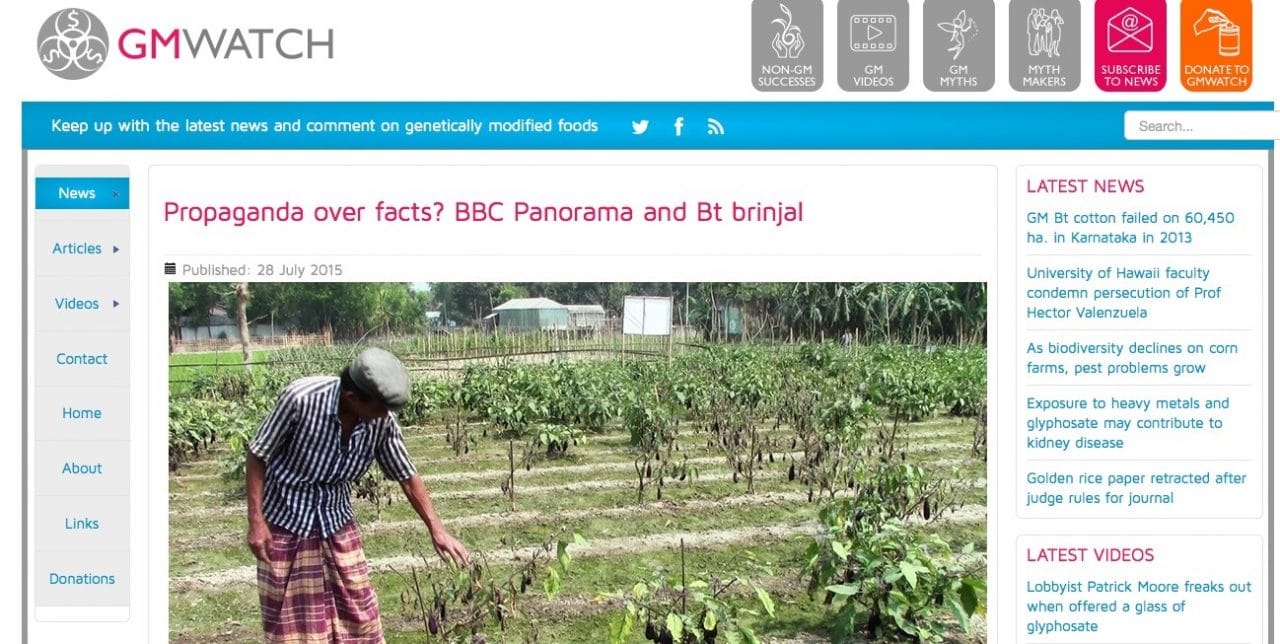The BBC documentary, GM Food: Cultivating Fear, which aired in June, has been criticized by Bangladeshi journalist Faisal Rahman for presenting misleading information about the cultivation of Bt brinjal in the country.
In the Panorama episode, pro-GMO campaigner Mark Lynas went to see a Bt brinjal field and was extremely positive about the crop’s performance, which, it was claimed, reduces the need for insecticides and helps avoid pesticide poisoning. The programme claimed a 90% success rate for the Bt brinjal in Bangadesh.
After watching the programme, Rahman, a staff correspondent for the United News of Bangladesh (UNB), contacted GMWatch, saying that he felt the programme “denied the reality of losses the farmers of Bangladesh incurred by cultivating Bt brinjal” and wanted to set the record straight, reports Claire Robinson, editor at GMWatch.
Rahman wrote a report in March for UNB focusing on the second year of Bt brinjal cultivation in Bangladesh and based on field visits and interviews with farmers growing the crop. The report – Bt brinjal turns out to be ‘upset case’ for farmers’ – concluded: “The cultivation of genetically-engineered Bt brinjal in the country’s several districts has cost the farmers their fortunes again this year as the plants have either died out prematurely or fruited very insignificantly compared to the locally available varieties.”
32 out of the 40 farmers Rahman surveyed for his report (out of the 108 farmers growing Bt brinjal this year) said they had experienced serious problems with the crop. And some farmers reportedly told Rahman that the Bangladesh Agricultural Research Institute (BARI), who developed Bt brinjal, had forbidden them to talk to journalists.
Rahman also said he was contacted by Panorama producer and researcher Joseph McAuley who wanted help contacting some of the farmers mentioned in the report. After giving him the details of a number of farmers, Rahman was surprised that none of these had been included in the programme.
“He said he visited some fields in two districts, Tangail and Kushtia. I asked him whether he visited the fields independently or whether there was someone else with him. He said he visited the fields with BARI officials. I asked him whether he thought the presence of BARI officials could produce an independent outlook on the reality.”
Rahman explained that the presence of officials during filming might well influence the farmers’ responses: “The colonial legacy here means that officials enjoy a lot of fearful respect from the farmers,” he said.
This latest questioning of the programme’s impartiality comes after a Beyond GM survey found that nearly 70% of the public do not trust the independence of experts featured on BBC programmes about GM https://staging2018.naturalproductsonline.co.uk/70-mistrust-bbc-impartiality-on-gm/.




